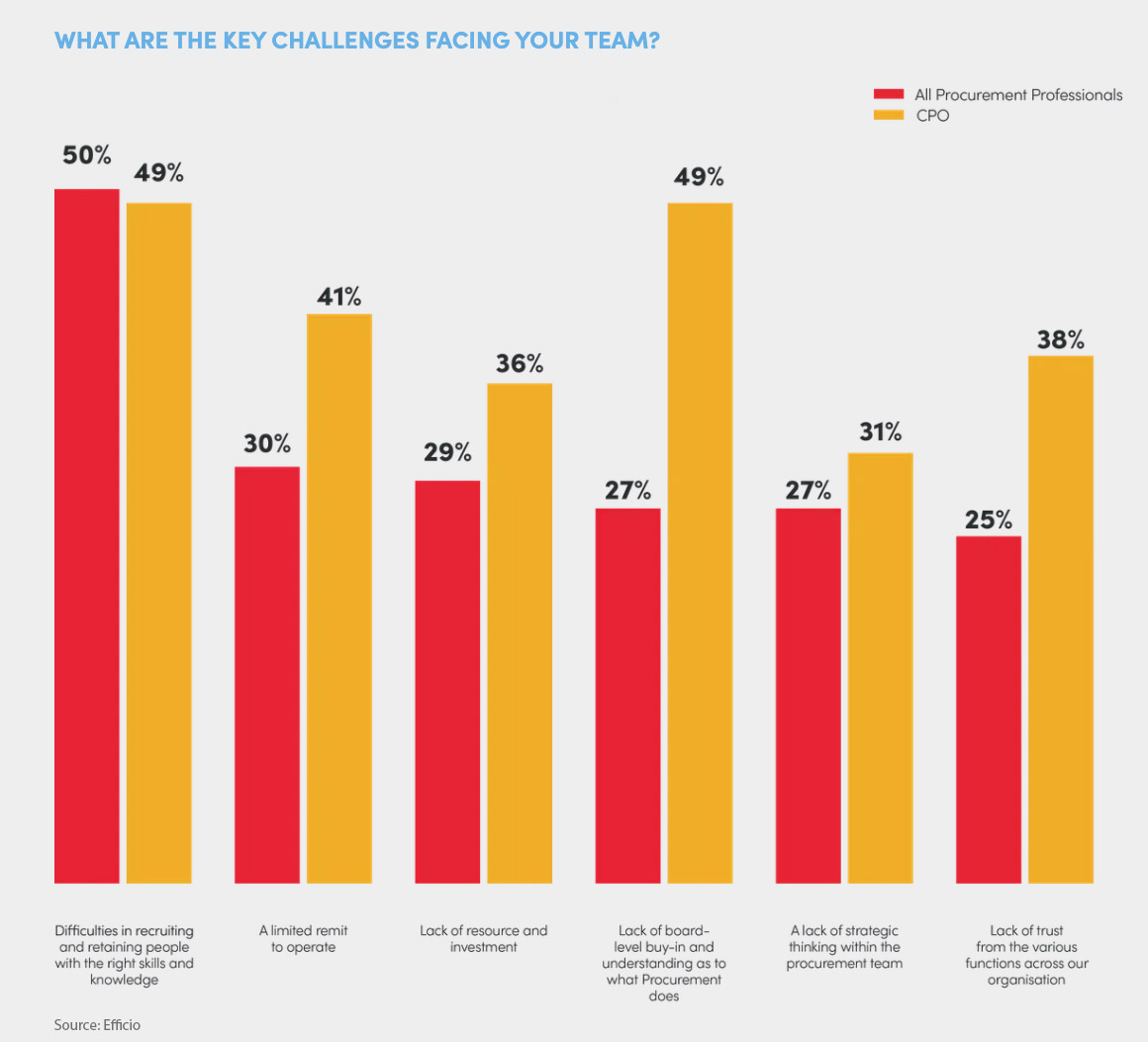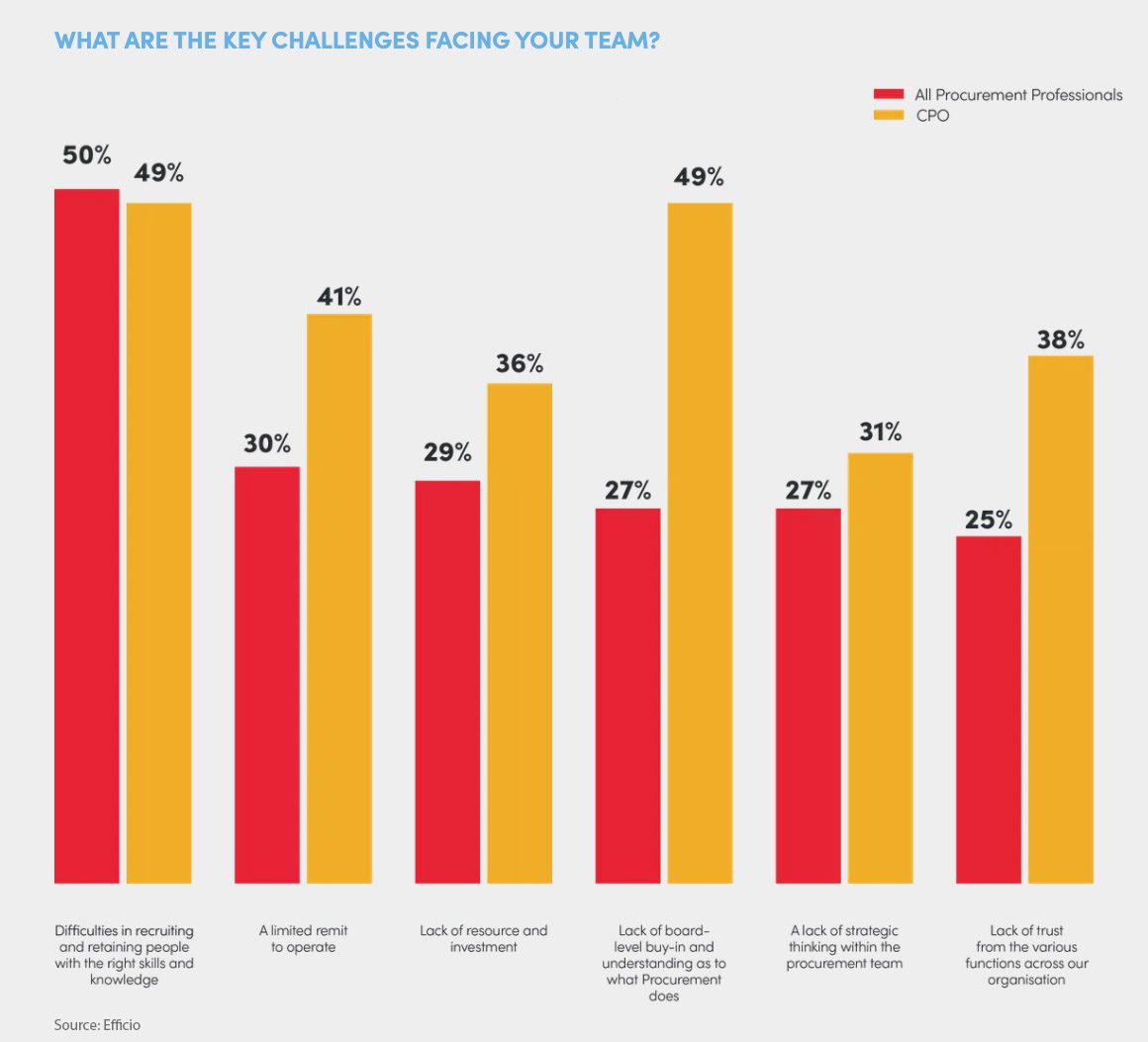The debate around sustainability initiatives within corporate cultures continues to rage on– as executives, boards and investors continue to squabble over whether to cut spending to prepare for a recession. New research now suggests that almost half of Chief Procurement Officers struggle to secure board-level buy-in for proposed sustainability measures.
For months now, a war of words has raged between investors and executives surrounding environmental, social and governance (ESG) policies. While executives were reportedly weighing up downsizing their spending on sustainability measures – in order to open up more financial headroom as a global recession looms – investors were increasingly vocal with threats of walking away from assets they considered to be underperforming on ESG.
While executives have increasingly ceded ground on this particular front – a recent poll even noting that 74% of them now consider sustainability to be as or more important than profit – a new front in this conflict has now opened up. According to a study from consulting firm Efficio, many boards are either resistant or disinterested in sustainability measures for an area of companies which often generates the largest part of its carbonfootprint: procurement.

A survey of 1,000 C-suite leaders, business managers and professionals in procurement jobs across the US, UK, UAE, Germany, Italy, Saudi Arabia and the Nordics found that many procurement leaders did not have backing from higher up the firm, when implementing ESG changes.
In the hierarchy of a company, the CEO is seen as the figurehead of the firm, like a Prime Minister working as first among equals with their cabinet, or the broader C-suite – CFO, COO, CIO, CPO (Chief Procurement Officer) – and so on. But above all of that is the board, who like the head of state, appoints the CEO, and can also remove them. As such, strategy changes to strategy, major investments, and in fact any truly important decisions have to be signed off by the board.
While 47% of CPOs polled told Efficio that ESG was the most important strategic project businesses were investing in – in second-place behind digital transformation on 49% – just 38% of procurement teams are currently capturing metrics about the sustainability of the supply chain to measure the success of their team – which could have drastic implications on firms hitting ESG targets, and keeping hold of sustainably-minded investors. This demonstrates the need to implement strategic change for procurement teams – but it is change many boards are failing to support.
In this case, Efficio found that 49% of CPOs struggled to gain board-room backing when it came to ESG initiatives and targets for their functions. According to Edward Cox, a Principal with Efficio, this needs to change quickly, or firms risk doing major damage to their prospects.
Cox explained, “For procurement teams to be successful with delivering ESG initiatives and meeting ESG related targets, a change is required between top level CPOs and procurement teams. While procurement’s traditional role of delivering cost savings will remain as a priority, the goal must be for short-term success to merge with long-term sustainability. The companies that do not transition to sustainable operations run a far greater risk regarding both business operations and reputation.”




